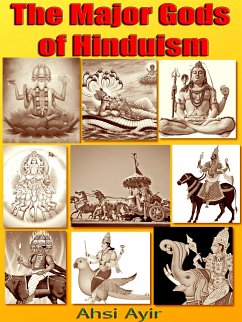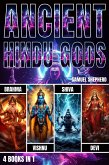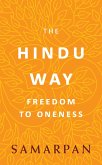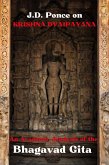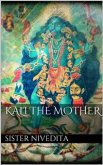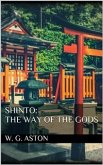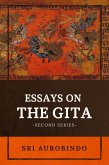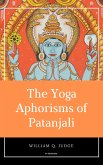In Hinduism, gods and goddesses are an integral part of the colorful Hindu culture. The main deities of the Vedic period are Indra, Agni, Soma, Varuna, Prajapati, Savita, and the goddesses Saraswati, Usha, Prithvi, etc. In later Hinduism, new gods and goddesses came in the form of many incarnations, such as Ganesha, Shri Rama, Shri Krishna, Hanuman, Kartikeya, Surya, Chandra, etc., and goddesses called mothers, such as Durga, Parvati, Lakshmi, Sheetla, Sita, Radha, Santoshi, Mahakali, etc. All these deities are mentioned in the Puranas and their total number is said to be 33 types. They are: 8 Vasu, 11 Rudra, 12 Aaditya, 1 Indra and 1 Prajaapati.
According to the Puranas, Brahma, Vishnu, and Shiva are the supreme powers and members of the Trinity. They are the rulers of nature. Without their permission, not even a leaf moves here. One more special thing—all the deities' works are divided. No one interferes in any particular area. Everyone has also been given their respective powers for the performance of the work. Apart from all this, the cow is also worshipped as a mother in Hinduism. It is believed that the entire 33 categories of deities reside in the cow. Many trees, rivers, animals, birds, mountains, etc. are worshipped here as God.
Hindu gods and goddesses have also taken many incarnations to protect religion and humanity. Among them, 10 incarnations of Lord Vishnu are considered prominent: Matsya, Kurma, Varaha, Vamana, Narasimha, Parashurama, Rama, Krishna, Buddha, and Kalki. The Kalki incarnation is the twenty-fourth incarnation of Lord Vishnu, which is set to take place at the end of the current Kali-yuga. His various forms are worshipped with full devotion and belief in the country and abroad. It is also said in religious texts that the deities may have different names, but all bless their devotees equally.
The stories of the origins of various Hindu gods are given in the present book. There may be similarities in some of the stories. I have compiled these from the Vedas, Puranas, and Upanishads. I hope the readers will find it interesting and informative.
According to the Puranas, Brahma, Vishnu, and Shiva are the supreme powers and members of the Trinity. They are the rulers of nature. Without their permission, not even a leaf moves here. One more special thing—all the deities' works are divided. No one interferes in any particular area. Everyone has also been given their respective powers for the performance of the work. Apart from all this, the cow is also worshipped as a mother in Hinduism. It is believed that the entire 33 categories of deities reside in the cow. Many trees, rivers, animals, birds, mountains, etc. are worshipped here as God.
Hindu gods and goddesses have also taken many incarnations to protect religion and humanity. Among them, 10 incarnations of Lord Vishnu are considered prominent: Matsya, Kurma, Varaha, Vamana, Narasimha, Parashurama, Rama, Krishna, Buddha, and Kalki. The Kalki incarnation is the twenty-fourth incarnation of Lord Vishnu, which is set to take place at the end of the current Kali-yuga. His various forms are worshipped with full devotion and belief in the country and abroad. It is also said in religious texts that the deities may have different names, but all bless their devotees equally.
The stories of the origins of various Hindu gods are given in the present book. There may be similarities in some of the stories. I have compiled these from the Vedas, Puranas, and Upanishads. I hope the readers will find it interesting and informative.

